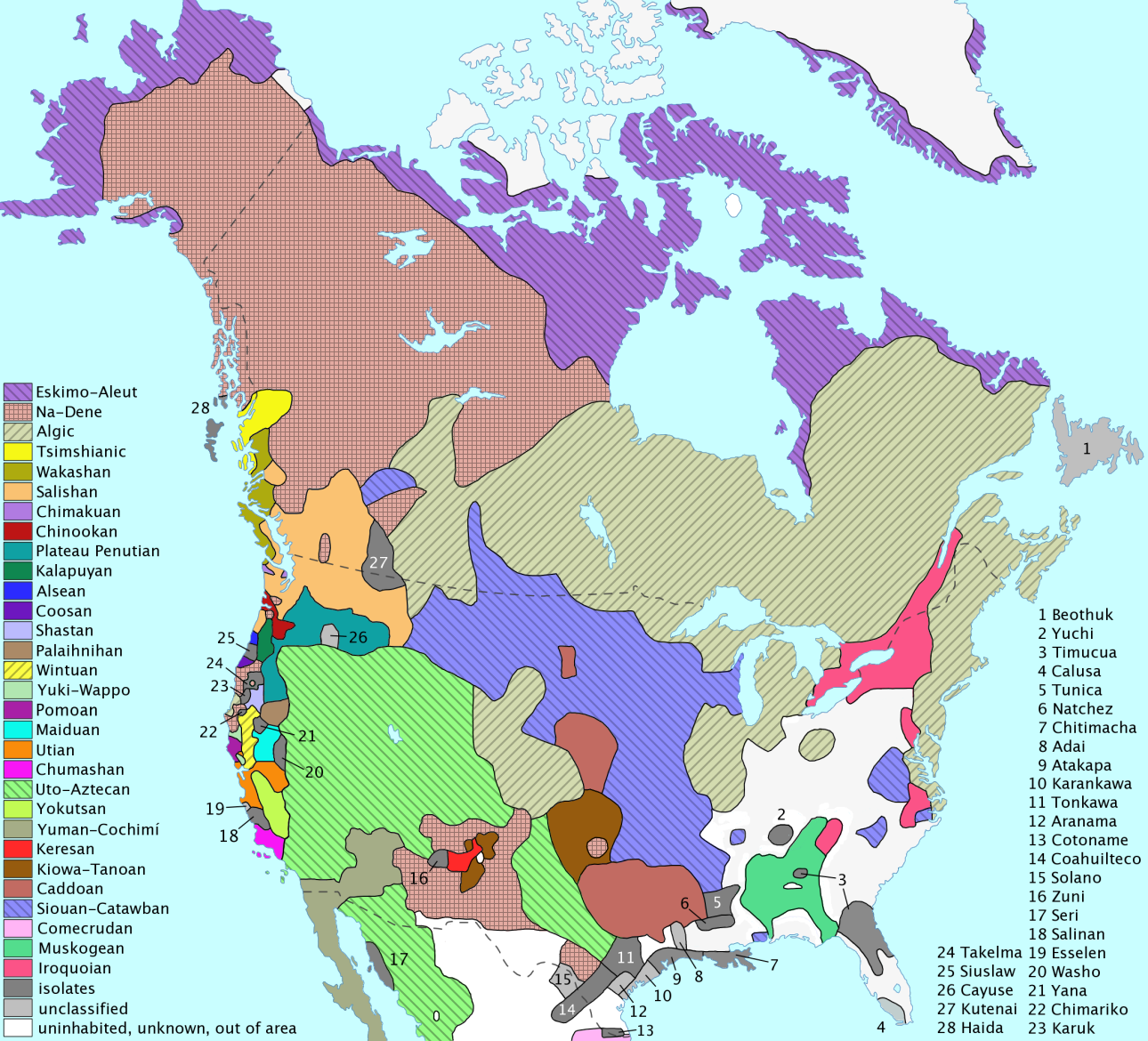
- Details
- By Native News Online Staff
Forty five tribal communities will work towards bolstering their Native languages, thanks to a $7 million boon from the Indian Affairs Office of Indian Economic Development announced today by Assistant Interior Secretary Bryan Newland (Bay Mills Indian Community).
The Living Languages Grant Program provides tribes and tribal organizations with funding to document and revitalize their Native languages.
For more than 150 years, federal Indian boarding schools operated in the US with an objective of eliminating Native languages, contributing to a loss of fluent speakers today.
“Native language preservation has for many years been cited by Indigenous leaders as important to their self-preservation, self-determination and sovereignty,’ Newland said in a press release. “Native preservation and language revitalization is a critical priority because languages go to the heart of a tribe’s unique cultural identities, traditions, spiritual beliefs and self-governance.”
Grant proposals were rated on the extent to which funding would document, preserve or revitalize a Native language; the degree to which the language addressed by a proposal risks extinction; the likelihood that the instruction to be funded would revitalize the language by preventing intergenerational disruption; and the number of students or percentage of Tribal members the proposal would benefit.
The competitive grant process ranked applicants based on: the extent to which funding would document, preserve or revitalize a Native language; the degree to which the language addressed by a proposal risks extinction; the likelihood that the instruction to be funded would revitalize the language by preventing intergenerational disruption; and the number of students or percentage of tribal members the proposal would benefit.
The grantees and funding amounts are:
- Artic Slope Community Foundation, Inc.: $172,026
- Bois Forte Band of Chippewa: $86,241
- Central Council of Tlingit & Haida Indian Tribes of Alaska: $200,000
- Chickaloon Native Village: $166,300
- Chickasaw Nation: $199,997
- Chippewa Cree Tribe: $180,100
- Comanche Nation: $192,121
- Confederated Tribes of Coos, Lower Umpqua & Siuslaw Indians: $161,150
- Confederated Tribes of the Umatilla Indian Reservation: $82,396
- Cow Creek Band of the Umpqua Tribe of Indians: $59,290
- Delaware Nation: $198,996
- Diné College: $60,189
- Forest County Potawatomi Community: $155,718
- Fort Belknap Community Economic Development Corporation: $199,680
- Fort McDermitt Paiute-Shoshone Tribe: $121,299
- Kashia Band of Pomo Indians of the Stewarts Point Rancheria: $199,686
- Keweenaw Bay Indian Community, Inc.: $200,000
- Lummi Nation: $200,000
- Manzanita Band of Diegueno Mission Indians: $129,337
- Mashpee Wampanoag Tribe: $199,901
- Modoc Nation: $199,854
- Mohegan Tribe of Indians CT: $85,064
- Muscogee (Creek) Nation: $69,789
- Nez Perce Tribe: $159,958
- North Fork Rancheria of Mono Indians of California: $192,371
- Northern Arapaho Tribe: $169,649
- Northwestern Band of the Shoshone Nation: $60,000
- Omaha Tribe of Nebraska: $200,000
- Pala Band of Mission Indians: $192,461
- Puyallup Tribe of Indians: $139,931
- Quapaw Nation: $72,000
- Rosebud Economic Development Corporation: $168,793
- Saginaw Chippewa Indian Tribe of Michigan: $193,998
- San Carlos Apache Tribal Council: $184,344
- Santee Sioux Nation: $157,956
- Santo Domingo Pueblo (Kewa Pueblo): $123,795
- Soboba Band of Luiseno Indians: $106,554
- Spirit Lake Tribe: $170,297
- Tribal Government of Saint Paul Island: $172,328
- Turtle Mountain Community College: $200,000
- Ute Mountain Ute Tribe: $200,000
- Washoe Tribe of Nevada and California: $138,230
- Wichita and Affiliated Tribes: $198,364
- Winnebago Tribe of Nebraska: $81,134
- Wiyot Tribe: $198,704
More Stories Like This
Native News Weekly (August 25, 2024): D.C. BriefsUS Presidents in Their Own Words Concerning American Indians
Indigenous Actor Elaine Miles Reports Detention by Alleged ICE Agents
Happy Thanksgiving from Native News Online
Coming Up on Native Bidaské: Behind the Animation: Joey Clift Talks “Pow” and Native Storytelling
Help us tell the stories that could save Native languages and food traditions
At a critical moment for Indian Country, Native News Online is embarking on our most ambitious reporting project yet: "Cultivating Culture," a three-year investigation into two forces shaping Native community survival—food sovereignty and language revitalization.
The devastating impact of COVID-19 accelerated the loss of Native elders and with them, irreplaceable cultural knowledge. Yet across tribal communities, innovative leaders are fighting back, reclaiming traditional food systems and breathing new life into Native languages. These aren't just cultural preservation efforts—they're powerful pathways to community health, healing, and resilience.
Our dedicated reporting team will spend three years documenting these stories through on-the-ground reporting in 18 tribal communities, producing over 200 in-depth stories, 18 podcast episodes, and multimedia content that amplifies Indigenous voices. We'll show policymakers, funders, and allies how cultural restoration directly impacts physical and mental wellness while celebrating successful models of sovereignty and self-determination.
This isn't corporate media parachuting into Indian Country for a quick story. This is sustained, relationship-based journalism by Native reporters who understand these communities. It's "Warrior Journalism"—fearless reporting that serves the 5.5 million readers who depend on us for news that mainstream media often ignores.
We need your help right now. While we've secured partial funding, we're still $450,000 short of our three-year budget. Our immediate goal is $25,000 this month to keep this critical work moving forward—funding reporter salaries, travel to remote communities, photography, and the deep reporting these stories deserve.
Every dollar directly supports Indigenous journalists telling Indigenous stories. Whether it's $5 or $50, your contribution ensures these vital narratives of resilience, innovation, and hope don't disappear into silence.
 The stakes couldn't be higher. Native languages are being lost at an alarming rate. Food insecurity plagues many tribal communities. But solutions are emerging, and these stories need to be told.
The stakes couldn't be higher. Native languages are being lost at an alarming rate. Food insecurity plagues many tribal communities. But solutions are emerging, and these stories need to be told.
Support independent Native journalism. Fund the stories that matter.
Levi Rickert (Potawatomi), Editor & Publisher

